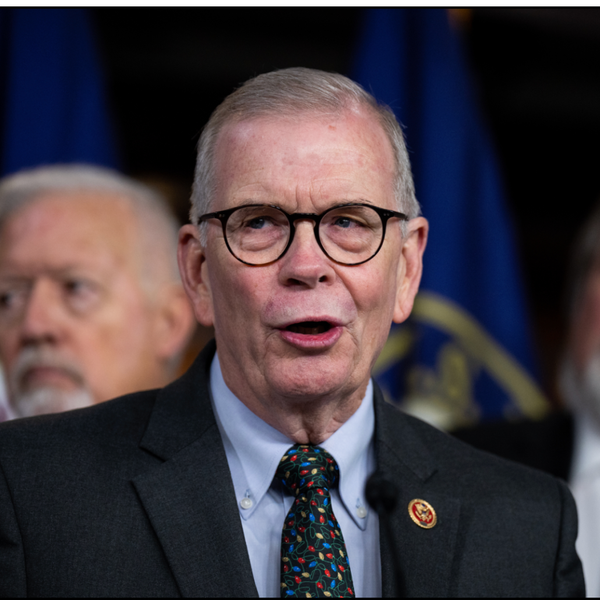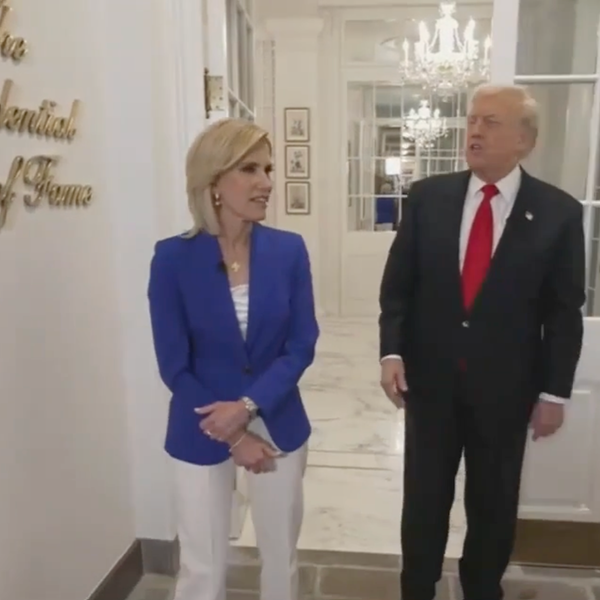
One of the nation’s most divisive Senate primaries could come to an end on Tuesday — if the GOP is lucky.
North Carolina Republicans are preparing to head to the polls to select their nominee to challenge embattled incumbent Senator Kay Hagan (D-NC) in the November general election. The race, which features nearly a dozen candidates, has narrowed to three contenders: state House Speaker Thom Tillis, obstetrician Greg Brannon, and pastor Mark Harris.
Tillis, the frontrunner, boasts a strong fundraising advantage and the support of some of the party’s biggest names; over the past several weeks, Senate Minority Leader Mitch McConnell (R-KY), 2012 Republican presidential nominee Mitt Romney, and possible 2016 nominee Jeb Bush have all lent Tillis their support. But his path to the nomination is far from clear. Brannon, who has gone to extreme lengths to establish himself as the most conservative candidate in the race, boasts strong right-wing support — and some big name endorsements of his own, in the persons of Senators Rand Paul (R-KY) and Mike Lee (R-UT). And Harris retains strong support among social conservatives.
Tillis is almost certain to finish in first place in Tuesday’s primary. Whether he will do so by a large enough margin, however, is an open question. If no candidate wins more than 40 percent of the vote, then the top two finishers will advance to a July 15 runoff.
The two most recent polls of the race show Tillis right on the border of winning outright. A SurveyUSA poll sponsored by the right-wing Civitas Institute found Tillis at 39 percent, with 20 percent supporting Brannon, 15 percent backing Harris, and 19 percent undecided. And a poll released Monday by left-leaning Public Policy Polling found Tillis at 40 percent, with Brannon at 28 percent, Harris at 15 percent, and 11 percent undecided.
National Republicans should be crossing their fingers, hoping that Tillis is able to crack 40 percent on Tuesday. If not, it could significantly damage the party’s chances of defeating Hagan (and thus, their chances of winning a Senate majority.)
A runoff would likely pit Tillis against Brannon, creating a three-month showcase for the GOP “civil war.” While Tillis has an extremely conservative record in North Carolina’s legislature, Tea Party groups such as FreedomWorks, Gun Owners for America, and Tea Party Patriots Citizens Fund have rallied behind Brannon’s cause. Groups that have supported Harris may join them. While Brannon may not be able to consolidate enough Tea Party support to leapfrog Tillis in the runoff, he would likely force Tillis to run even further to the right — opening up new lines of attack for Hagan in the general election. And even if Tillis survives such a runoff, it would cost the GOP huge sums of money and three months and that it could otherwise have spent focusing on Hagan alone.
If Brannon does manage to win the nomination, however, then Republicans will have a huge problem on their hands. Even in North Carolina, Brannon’s positions are far outside of the mainstream; Democrats would certainly love the opportunity to cut attack ads on Brannon’s suggestion that food aid “enslaves people,” or on his dabbling in 9/11 trutherism.
Senator Hagan clearly understands how valuable a runoff would be to her political hopes; the incumbent Democrat has been running ads suggesting that Tillis’ opposition to the Affordable Care Act is insincere, in a barely veiled attempt to give a late boost to Brannon’s candidacy.
Photo: Mr T in DC via Flickr








